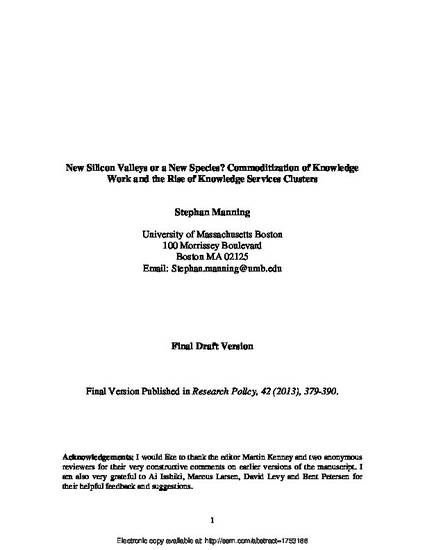
- Business Administration, Management, and Operations,
- Growth and Development,
- Human Geography,
- Human Resources Management,
- Industrial Organization,
- International Business,
- International Economics,
- Political Economy,
- Strategic Management Policy,
- Technology and Innovation and
- Work, Economy and Organizations
This paper explores knowledge services clusters (KSCs) as a distinct and increasingly important form of geographic cluster, in particular in emerging economies: KSCs are defined as geographic concentrations of lower-cost skills serving global demand for increasingly commoditized knowledge services. Based on prior research on clusters and services offshoring, and data from the Offshoring Research Network (ORN), major properties and contingencies of KSC growth are discussed and compared with both high-tech clusters and low-cost manufacturing clusters. Special emphasis is put on the ambivalent effect of commoditization of knowledge work on KSC growth: It is proposed that KSCs attract most projects if service commoditization is medium, whereas higher or lower commoditization either increases global competitive pressure or lowers demand and economies of scale and scope. KSC attractiveness is further related to the perceived availability of skills at relatively low costs, and cluster connectedness with client economies through corporate networks and professional communities. Findings not only advance current debates on clusters, global services sourcing, and the geography of knowledge production, but also have important policy implications.

See also: http://ssrn.com/abstract=1753188